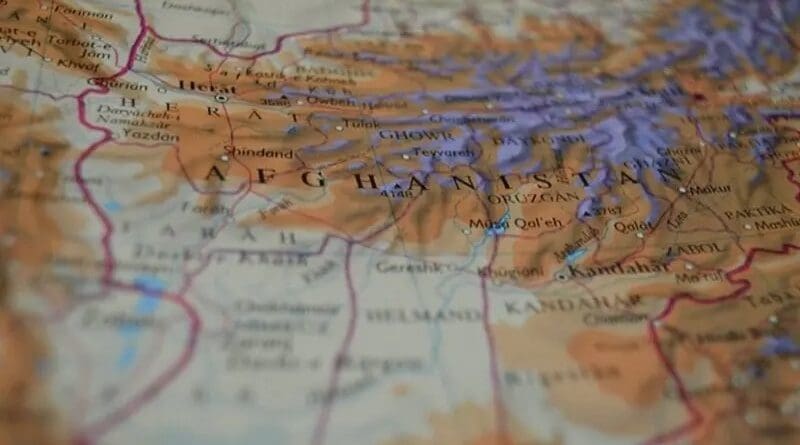US Forces To Build Special Ops Base In Northern Afghanistan
By Eurasianet
By Deirdre Tynan
The US Department of Defense is planning to build a Special Operations complex just 56 kilometers from the Uzbek-Afghan border. Up to $100 million is being earmarked for the sprawling facility, which will be constructed over 17.3 acres near Mazar-i-Sharif in northern Afghanistan. According to a modified pre-solicitation advertised on the US government’s Federal Business Opportunities website (FBO.gov) on June 30, the “Support Facilities for the Special Operations (SOF) Headquarters at Mazar-i-Sharif” will be “located approximately 275 kilometers northwest of the city of Kabul and 56 kilometers south of Termez, Uzbekistan.” The facility is expected to cost between $25 million and $100 million and is based on US Central Command’s “Integrated Global Presence, Basing Strategy and Master Plan.” A formal solicitation will be released in mid-July and an award is expected to be made “no later than September 28.” The winner of the tender would have approximately 18-months to complete work after obtaining a notice to proceed. As a result, the complex should be operational by late 2011 or early 2012.
In December 2009, President Barack Obama said US forces would begin to “transfer out” of Afghanistan in July 2011. According to the pre-solicitation on the FBO.gov website, “the scope of the Project includes a Joint Operations Center (JOC), billeting facilities, communications building, Tactical Operations Center and storage, training facility, medical aid station, Vehicle Maintenance Facility, logistics operations facility, logistics storage facility, dining facility, [Morale Welfare and Recreation] facility, and a kennel to support working dogs.”
Gen. David Petraeus, the former head of CENTCOM and the newly appointed commander of International Security Assistance Force/US Forces-Afghanistan, told a US Senate Armed Services Committee hearing in April that overseas facilities are vital to support “ongoing operations.” “CENTCOM’s overseas basing strategy and its associated overseas Military Construction projects are developing the infrastructure necessary for the conduct of ongoing operations, as well as supporting global access, projection, sustainability and protection of our combined forces in the area of responsibility,” he said.
According to a notice posted on FBO.gov in March, CENTCOM expects to pay up to $3.8 billion between 2012 and 2016 for construction work across its area of responsibility, spanning the Middle East and Central Asia. Among the projects under consideration are “a vast array of building types commonly found at military installations, (barracks, dining facilities, equipment maintenance facilities, operations facilities, etc.). Construction of airfield and airfield support facilities is also envisioned.”
In June, CENTCOM also launched a number of solicitations for smaller projects in Central Asia, including border checkpoints in Turkmenistan, Uzbekistan and Kyrgyzstan and training facilities in Kazakhstan, Kyrgyzstan and Tajikistan, where US troops will train and equip local security forces.
US Special Forces’ 3rd Group was recently re-aligned with a renewed focus on the Central Asian-Afghan area. A spokesman for US Special Operations Command described the unit’s responsibilities in Central Asia as “traditional Special Forces missions like direct action, special reconnaissance, foreign internal defense, security force assistance and others in Afghanistan.” The unit will also “be prepared to conduct foreign internal defense and security forces assistance to assist partner nations improve their ability to provide for their own security in Pakistan, Tajikistan, Turkmenistan, Uzbekistan, Kazakhstan and Kyrgyzstan,” the spokesman added.
Deirdre Tynan is a Bishkek-based reporter specializing in Central Asian affairs.

